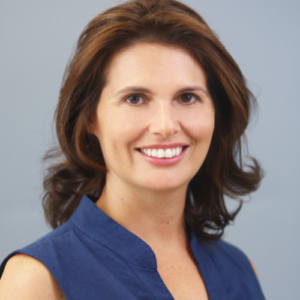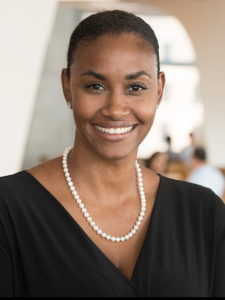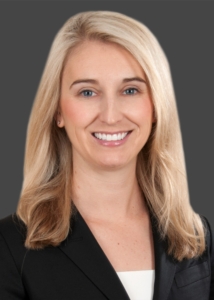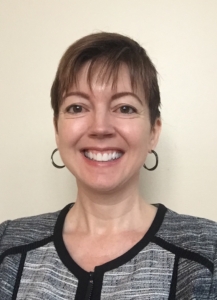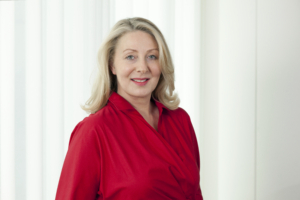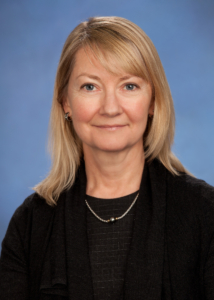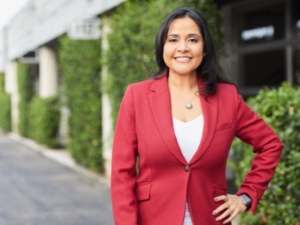By Cathie Ericson
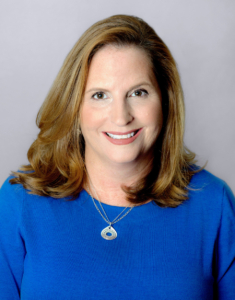 Any successful professional will tell you that sometimes you need to rely on intuition to manage the multiple types of interpersonal situations that can arise. For WEX’s Jessica Roy, it boils down to trusting your gut the moment you identify that something is a bit off—whether it’s a feeling about how a project is being received or the sense during a conversation with a colleague that you’re just not getting your point across.
Any successful professional will tell you that sometimes you need to rely on intuition to manage the multiple types of interpersonal situations that can arise. For WEX’s Jessica Roy, it boils down to trusting your gut the moment you identify that something is a bit off—whether it’s a feeling about how a project is being received or the sense during a conversation with a colleague that you’re just not getting your point across.
“It’s almost always intangible, because if you knew what was wrong you’d fix it,” she says. But at those times, she believes it’s more important than ever to take an extra moment to revisit the situation, candidly inviting the other party to speak up so the two of you can fix the situation rather than letting it fester.
“When you experience that nagging piece, you have to take the time to dig in to understand what may not be working well and solve it”, she says, or even agree to disagree after having the conversation. But she’s found that it’s always worth it to clarify a position rather than taking the easier way out and letting it go.
Reveling in a Career That Could Never Be Called Boring
Committing to following that intuition when needed has helped Roy progress throughout her career. Her first corporate job as the regional marketing director for outlet malls in the Northeast prepared her for anything, she says.
Among the tasks she deftly handled over the years were rescuing a nun from a locked bathroom on the Fourth of July weekend in Cape Cod; answering a call about a man who had fallen into a retaining pond in the North Conway location during the holiday season; and single-handedly emptying a luxury-brand shoe store after the bankrupt tenant fled under cover of darkness.
What did the mayhem teach her? That even though all the above incidents seemed to have nothing to do with her title of “marketing director,” they actually had everything to do with it, because each mishap offers an opportunity to create a positive customer touch point.
Her next position was what she calls “a delightful stint” in tourism marketing for her beloved home state of Maine, promoting the New England region to overseas tourists.
And now, although she’s been with WEX for 15 years, the company has experienced such rapid growth that it feels like a different job every five years, she says, adding that as WEX continues to acquire new companies and move into new verticals, her corporate position will continue to evolve and grow.
Roy is particularly excited about the rebranding she helped to oversee, with the charge to modernize the corporate brand (Wright Express), rationalize the product brands, integrate acquisition brands and complete a brand launch. During the process, she and her colleagues also renamed the company to WEX and redesigned the logo—both of which were key components in changing its positioning from a domestic fuel card business to a global payments company. “Our brand is a living, breathing, evolving entity,” Roy says.
A highlight was standing on the floor of the New York Stock Exchange when WEX went public. “There I was, in the middle of managed chaos, watching the then-CEO ringing the bell, and then our ticker symbol went live,” she recalls. “This was an amazing American moment, and I felt that I was not only witnessing but participating in the American dream. What I realized in that moment was that a small group of talented, driven people can accomplish amazing things.”
That’s the vision she continues to drive forward—currently finding incredible pleasure and challenge in integrating the products and services of two recently acquired companies into the broader WEX offerings. “It’s like a challenging jigsaw puzzle, and it is exciting to put the pieces into the right places,” she says.
Finding Meaning Outside the 9-to-5
Roy is part of WEX’s recently introduced “Women at WEX” mentorship program, which has garnered enormous interest in the company. “Obviously the need is there,” she says, based on the positive response it has received. In addition, she has benefitted from numerous other leadership programs over the years.
As a native of the tiny mill town of Madawaska, Maine—as far north as you can go without hitting Canada—Roy has taken every opportunity she can to travel the world. Among the amazing sights she’s had the pleasure of seeing are giant tortoises in the Galapagos Islands, Buddhist temples in Japan and 800-year-old hill villages in southwest France. The best part? “I’m just getting started,” she says.

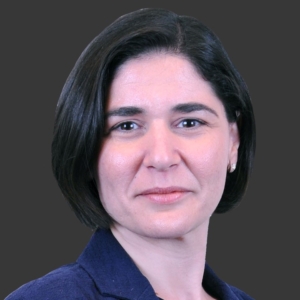 If you don’t ask for what you want, you’re not likely to get it, says Shearman & Sterling’s Gillian Emmett Moldowan. “There’s less informal mentoring for women in law firms, and it can be harder for women to just ask for what they want, but if you fail to do so, it’s unlikely people are going to seek you out to offer what you need,” she notes.
If you don’t ask for what you want, you’re not likely to get it, says Shearman & Sterling’s Gillian Emmett Moldowan. “There’s less informal mentoring for women in law firms, and it can be harder for women to just ask for what they want, but if you fail to do so, it’s unlikely people are going to seek you out to offer what you need,” she notes.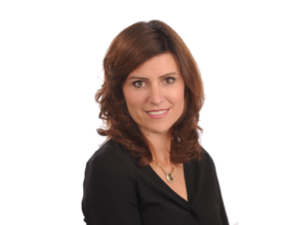 Wells Fargo’s Kristi Mitchem believes that women need to visibly support one another. Where a man might readily high five another man for something unremarkable, research shows that women can be more reserved in their praise. Women are naturally aligned with other women and as such, Mitchem stresses the importance of consciously and vocally “friending” one another in corporate settings. “I tell women not to come out of a meeting without commending another woman. You want her to know that it’s important that she shared her opinion,” Mitchem says. “You also want the men in the room to recognize that she has value to add. “
Wells Fargo’s Kristi Mitchem believes that women need to visibly support one another. Where a man might readily high five another man for something unremarkable, research shows that women can be more reserved in their praise. Women are naturally aligned with other women and as such, Mitchem stresses the importance of consciously and vocally “friending” one another in corporate settings. “I tell women not to come out of a meeting without commending another woman. You want her to know that it’s important that she shared her opinion,” Mitchem says. “You also want the men in the room to recognize that she has value to add. “